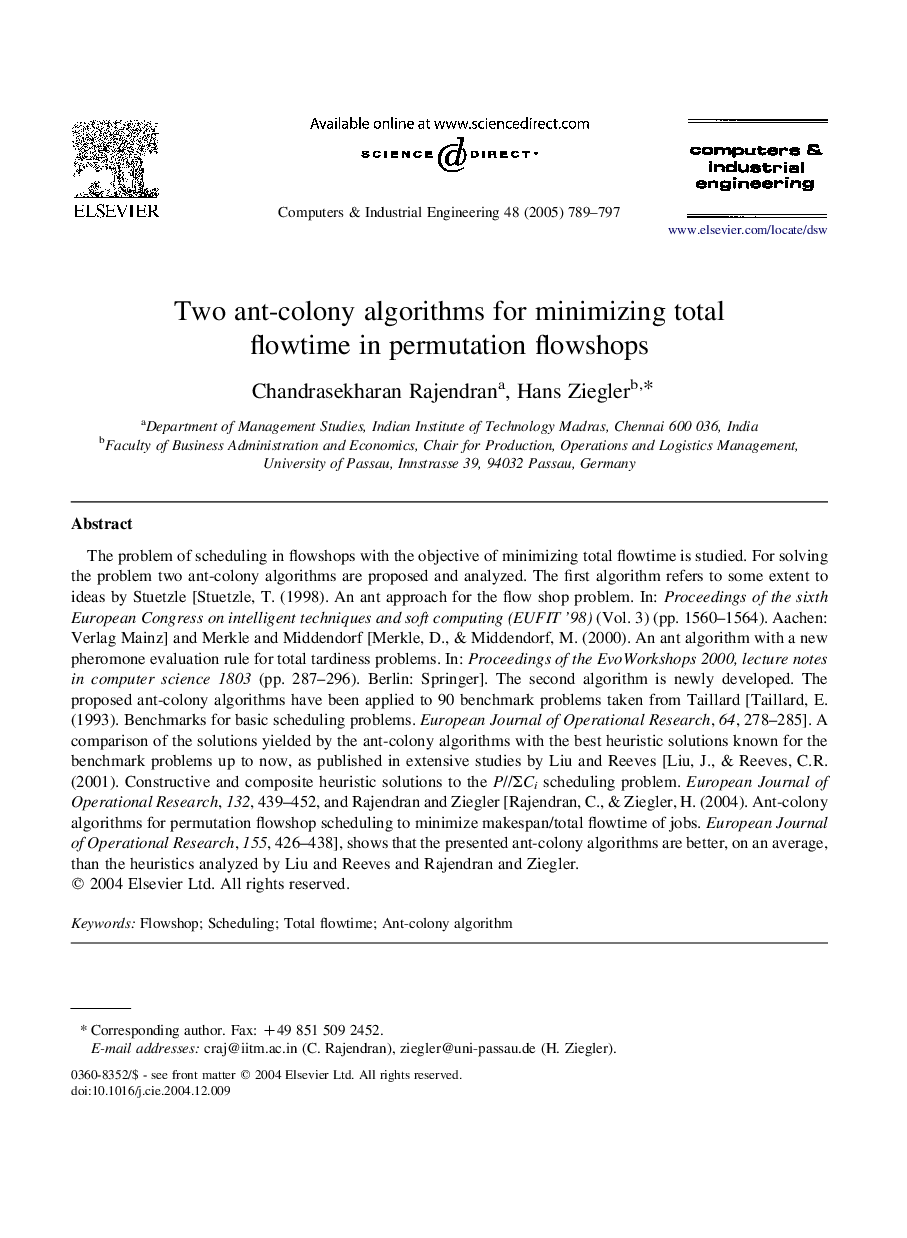| Article ID | Journal | Published Year | Pages | File Type |
|---|---|---|---|---|
| 10523280 | Computers & Industrial Engineering | 2005 | 9 Pages |
Abstract
The problem of scheduling in flowshops with the objective of minimizing total flowtime is studied. For solving the problem two ant-colony algorithms are proposed and analyzed. The first algorithm refers to some extent to ideas by Stuetzle [Stuetzle, T. (1998). An ant approach for the flow shop problem. In: Proceedings of the sixth European Congress on intelligent techniques and soft computing (EUFIT '98) (Vol. 3) (pp. 1560-1564). Aachen: Verlag Mainz] and Merkle and Middendorf [Merkle, D., & Middendorf, M. (2000). An ant algorithm with a new pheromone evaluation rule for total tardiness problems. In: Proceedings of the EvoWorkshops 2000, lecture notes in computer science 1803 (pp. 287-296). Berlin: Springer]. The second algorithm is newly developed. The proposed ant-colony algorithms have been applied to 90 benchmark problems taken from Taillard [Taillard, E. (1993). Benchmarks for basic scheduling problems. European Journal of Operational Research, 64, 278-285]. A comparison of the solutions yielded by the ant-colony algorithms with the best heuristic solutions known for the benchmark problems up to now, as published in extensive studies by Liu and Reeves [Liu, J., & Reeves, C.R. (2001). Constructive and composite heuristic solutions to the P//ΣCi scheduling problem. European Journal of Operational Research, 132, 439-452, and Rajendran and Ziegler [Rajendran, C., & Ziegler, H. (2004). Ant-colony algorithms for permutation flowshop scheduling to minimize makespan/total flowtime of jobs. European Journal of Operational Research, 155, 426-438], shows that the presented ant-colony algorithms are better, on an average, than the heuristics analyzed by Liu and Reeves and Rajendran and Ziegler.
Related Topics
Physical Sciences and Engineering
Engineering
Industrial and Manufacturing Engineering
Authors
Chandrasekharan Rajendran, Hans Ziegler,
